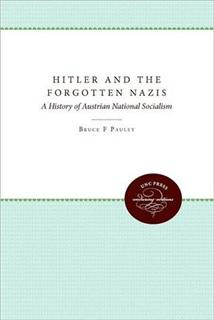1989 The University of North Carolina Press
All rights reserved
Library of Congress Cataloging-in-Publication Data
McManamon, John M.
Funeral oratory and the cultural ideals of Italian humanism / John
M. McManamon.
p. cm.
Bibliography: p.
Includes indexes.
ISBN 0-8078-6566-4
1. Speeches, addresses, etc., Latin (Medieval and modern)History and criticism. 2. Funeral orationsHistory and criticism. 3. Ethics in literature. 4. Rhetoric15001800. 5. Rhetoric, Medieval. 6. HumanistsItaly. 7. OratoryItaly. I. Title.
88-19840
PA8085.M35 1989
CIP
808.51dc19
The paper in this book meets the guidelines for permanence and durability of the Committee on Production Guidelines for Book Longevity of the Council on Library Resources.
Printed in the United States of America
93 92 91 90 89 5 4 3 2 1
CONTENTS
CHAPTER ONE
The Rhetorical Situation
CHAPTER TWO
A Humanist Conviction: Virtue Increases When Praised
CHAPTER THREE
Bona Externa: Birthplace, Descent, Education
CHAPTER FOUR
Ecclesiastical Ideals: As You Did It to Any of the Least
CHAPTER FIVE
Political Ideals: Be Merciful to the Submissive, and Crush the Arrogant
CHAPTER SIX
Academic Ideals: Perfected in the Arts Appropriate to Humanity
CHAPTER SEVEN
Ethos Enshrined
Appendix:
A Short-title Finding List of Funeral Orations from the Italian Renaissance, ca. 13741534
PREFACE
Some years ago, while rummaging through the catalogues of incunabula in a rather fruitless search for Ash Wednesday sermons from Renaissance Italy, I began to notice how frequently the title Oratio in funere recurred among the catalogues entries. I asked my director at the time, John OMalley, whether the funeral orations of the Renaissance had ever been studied and if he felt they merited such attention. He answered no to the first question and gave an affirmative response to the second on the basis of his sound scholarly instincts.
A few months later OMalley introduced me to Paul Oskar Kristeller while we were all attending the annual conference on medieval studies at Western Michigan University. When OMalley mentioned to Kristeller that I had begun to research the topic of Renaissance funeral oratory, the renowned professor immediately asked me how many orations I had discovered in the course of my research. I had not completed a systematic investigation at that time. I therefore nervously went with an estimate, based upon my impression that there were many speeches, and responded with what seemed to me the enormous total of approximately seventy. Kristeller paused in his tracks, looked at me somewhat perplexed, and assured me on the basis of his vast knowledge of Renaissance sources that there were many more than seventy. He was correct, as a glance at the appendix will demonstrate.
Thus was a project felicitously born, with the encouragement and corrective guidance of two influential scholars whose continued interest over the years has been no less active or appreciated. In fact, I have consistently been fortunate to receive assistance and encouragement from other learned scholars, whom I happily consider friends. I am grateful to Salvatore Camporeale, Arthur Field, Gianfranco Fioravanti, Mark Henninger, Margaret King, Julian Kliemann, David Marsh, John Monfasani, Helen North, and Charles Rosenberg for reading parts of the study and contributing to its improvement. I wish to thank in a special way the individuals who read and criticized an earlier draft of the entire book: Stephen Baxter, Melissa Bullard, Fred Behrends, George Kennedy, Ann Vasaly, Ronald Witt, and particularly John Headley.
This book interprets a species of oratory practiced in a particular European region over a period of approximately 160 years. I first had to locate the materials relevant to the study. The catalogues of incunabula and the biographical data compiled on Italian humanists in the last hundred years supplied many leads. The single most important resource, however, was the Iter Italicum of Paul Oskar Kristeller. An entry-by-entry reading of its three volumes published to date helped me to assemble a list of potentially relevant orations and isolate the more popular ones through their frequency of appearance and diffusion.
Travels to various libraries and archives throughout Italy brought the list into finer focus. I thank the American Academy in Rome, Villa I Tatti in Florence, and the National Endowment for the Humanities for fellowships that financed those travels and permitted me to work in most congenial and supportive scholarly communities. I am also grateful to the many libraries that allowed me to consult their resources firsthand or granted my requests for microfilm. A special word of thanks goes to the prefect and staff of the Vatican Library, whose vast humanist holdings supplied the majority of material for this work.
Lewis Bateman, executive editor of the University of North Carolina Press, has competently guided every stage of production and patiently answered my many queries. I gained much from the careful reading and criticisms of the Presss professional referees and from the diligent work of staff members like Laura Oaks, Sandra Eisdorfer, and Amy Schutz. I especially acknowledge the Presss interest in publishing a work that issues from a rather specialized area of European intellectual history. A generous subvention awarded by Loyola University of Chicago also aided the publication of this book. I hope to repay the Universitys confidence by sharing with its students my belief in humanism. Scott Smith of Loyola gave many hours to help me prepare the index.
During the years that I have studied oratory, friends and colleagues have frequently said to me that certain passages and ideas are merely topics. What is important, though, is that orators were fully aware that they were using common ways of thinking and modes of expression in inventing their speeches. In fact, Aristotle had defined the art of rhetoric as the ability to discover the available means of persuasion: one need not persuade to be a good orator; the art lay in choosing from common categories to craft a discourse. Prefaces to scholarly writings often contain acknowledgments like my own. I personally read them as manifestations of the scholars art of rhetoric and hope that mine are seen to reflect conscious choices and sincere sentiments. Scholarship is much more of a communal venture than it may seem.
In quoting Latin sources, I have decided to standardize orthography and punctuation according to modern criteria. That applies to titles, names, and quotations from the texts themselves. Square brackets indicate material lacking in a source, which I have added. I have not used the recto sign except for references limited to a single folio: e.g., fols. 5253v, but fol. 52rv. In notes that involve a series of speeches, the citations are arranged in alphabetical order to facilitate reference to the appendix. I have used vernacular names whenever possible. These steps were taken to assist the reader in entering the peculiar world of celebratory orations so prized by humanists of the Italian Renaissance. If I have misrepresented that world or portrayed it unfairly, the blame is mine alone.
At the conclusion of my sophomore year of high school, I was offered a choice between two curricula. I could pursue a course in Classical Honors, which meant two further years of Latin and two years of Greek, or I could choose Scientific Honors, where French and the physical sciences were emphasized. Though attracted toward science when it was riding the crest of the educational wave, I knew that my parents would insist on the curriculum in classical languages. I therefore decided to contribute to familial harmony for once in my life. I announced my choice for Classical Honors and sensed immediately from my parents approval that my instincts were correct. I dedicate this book to my mother and father as an expression of affection for two intrepid defenders of the humanist tradition.



